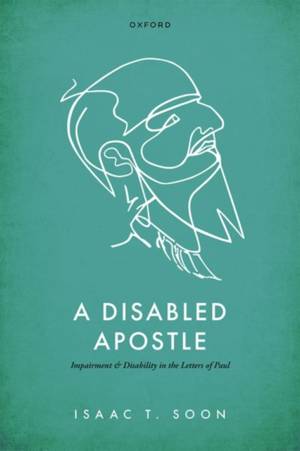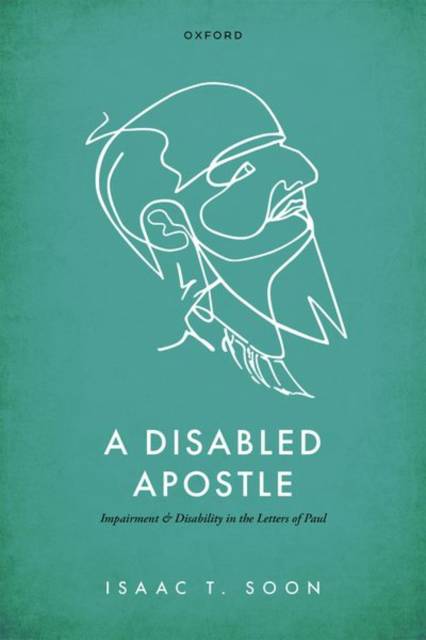
- Retrait gratuit dans votre magasin Club
- 7.000.000 titres dans notre catalogue
- Payer en toute sécurité
- Toujours un magasin près de chez vous
- Retrait gratuit dans votre magasin Club
- 7.000.0000 titres dans notre catalogue
- Payer en toute sécurité
- Toujours un magasin près de chez vous
A Disabled Apostle
Impairment and Disability in the Letters of Paul
Isaac T Soon
Livre relié | Anglais
126,95 €
+ 253 points
Description
Speculation around the health of Paul the Apostle has been present since soon after his death. Recently scholars have understood Paul to be disabled but have been wary of isolating precisely what his disabilities may have been or whether they are important for understanding his writings. This book is the first full-length study of Paul the Apostle and disability. Using insights from contemporary disability studies, Isaac Soon analyses features of Paul's body in his ancient Mediterranean context to understand the ways in which his body was disabled. Focusing on three such ancient disabilities--demonization, circumcision, and short stature--this book draws on a rich variety of ancient evidence, from textual sources and epigraphy, to ancient visual culture, to analyze ancient bodily ideals and the negative cultural effects such 'deviant' persons generated. The book also examines Paul's use of his own disabilities in his letters and shows how disability is not subsidiary to his thought but a central aspect of it. This book also provides scholars with a new method for uncovering previously unrecognized disabilities in the ancient world. Last of all, it critiques the latent ableism in much New Testament scholarship, which assumes that the figures of the early Jesus movement were able-bodied.
Spécifications
Parties prenantes
- Auteur(s) :
- Editeur:
Contenu
- Nombre de pages :
- 310
- Langue:
- Anglais
Caractéristiques
- EAN:
- 9780192885241
- Date de parution :
- 01-12-23
- Format:
- Livre relié
- Format numérique:
- Genaaid
- Dimensions :
- 163 mm x 229 mm
- Poids :
- 612 g

Les avis
Nous publions uniquement les avis qui respectent les conditions requises. Consultez nos conditions pour les avis.






